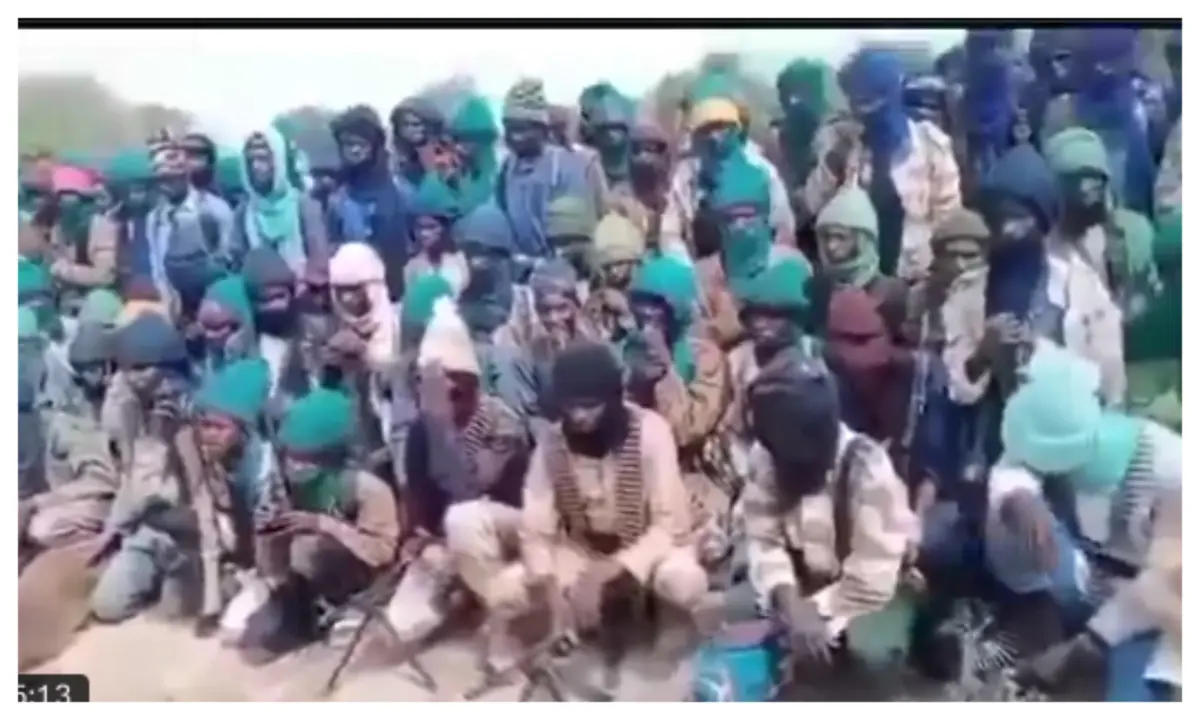Zamfara State in Northern Nigeria has the highest number of Internally Displaced Persons (IDPs), with official records indicating over 124,000 individuals forced to abandon their villages due to ongoing attacks and killings by bandits.
Reports show that between 2009 and 2024, more than 102 villages have been deserted as bandits have burned or destroyed homes, compelling residents to flee for their lives to Gusau, the state capital, where they now live as IDPs.
Forced to abandon their homes and livelihoods, many find themselves in overcrowded camps, struggling to survive with limited resources. With the rainy season complicating their search for work, this desperation has forced some to seek out day labour while others resort to begging.
In this environment, community support becomes a lifeline, as donations of essential foodstuffs are crucial for their survival. Their stories, marked by loss and resilience, paint a poignant picture of the challenges faced by those uprooted by conflict.
Zamfara State in Northern Nigeria has the highest number of Internally Displaced Persons (IDPs), with official records indicating over 124,000 individuals forced to abandon their villages due to ongoing attacks and killings by bandits.
Reports show that between 2009 and 2024, more than 102 villages have been deserted as bandits have burned or destroyed homes, compelling residents to flee for their lives to Gusau, the state capital, where they now live as IDPs.
A troubling aspect of Zamfara’s humanitarian crisis is the increasing reliance of displaced individuals on begging for alms.
LEADERSHIP Sunday reports that many of the affected individuals, primarily women and small children, have lost their spouses to bandit attacks and are currently residing in various Internally Displaced Persons (IDP) camps established by the state or local governments. While some IDPs have access to government-provided shelters, others are staying with communities, either in rented accommodations or with relatives.
Recent findings indicate that the situation for many IDPs in Gusau, the state capital, has worsened, leading to significant social concerns. A large number of women and small children have resorted to begging, and some women of moderate age have engaged in both begging and prostitution.
According to data from the Zamfara State Government’s Ministry of Humanitarian and Disaster Management, there were 124,678 Internally Displaced Persons in Zamfara as of March, with 75 percent experiencing multiple displacements. Despite this staggering number, only eight camps or similar facilities exist in the state, accommodating about 18 percent of the displaced population.
LEADERSHIP Sunday reports that inadequate housing facilities force displaced individuals into dire living conditions within host communities. In Gusau, for instance, about ten people often share a cramped room in a private home. At night, they have to spread their sheets outdoors or in a large field behind the Federal Medical Centre (FMC) across from their residence.
The state government has established seven Internally Displaced Persons (IDP) camps, including Tsunami IDP Camp, Mareri Camp, Lalan Area Camp, Premier Camp, Tudun Wada Camp, Unguwar Gwaza Camp, and Anka IDP Camp.
During a visit to Tsunami IDP Camp at Government Secondary School Tsunami, our correspondent noted the absence of many male IDPs, who are typically away seeking work on nearby farms or begging for a living.
Additionally, it was observed that the IDPs do not receive sufficient food supplies from the government, receiving meals only once a day. Malam Sani Aminu, an officer responsible for distributing food items at Tsunami, stated that while the state government supplies items like maize, millet, and sorghum, the quantities are inadequate to satisfy the large number of IDPs.
In Gusau, the Internally Displaced Persons (IDPs) confront issues of overcrowding and hunger. To survive, they rely on food donations, such as garri and other essentials, from compassionate members of the host community. The Tsunami IDP camp is home to at least 600 men and 900 women and children.
Struggling to find stable employment in their new environment, some IDPs at Mareri Camp risk their lives to seek day labor in farming for food, while others sneak back to their villages to retrieve food and belongings.
Safiyanu Shehu, an IDP at Tudun Wada Camp, described his family’s plight, explaining that before arriving in Gusau, they had clung to hope despite severe challenges. Having invested their lives in their hometown, farming millet, sorghum, guinea corn, groundnuts, and beans, leaving was not an option they had considered lightly.
However, this year, bandits ordered them to abandon their farms, and it became clear that survival meant leaving everything behind. It was an agoniding choice, but staying would invite death, LEADERSHIP Sunday can report.
Shehu silaid, “Bandits attacked us daily until one day they chased us out. We had no choice but to flee to Gusau from Zurmi local government. Even when you don’t know where you’re going, without food or security, you must leave that day,” shared a distraught resident.
“We have nothing left. They completely overran our village. It was clear that things had spiraled out of control. There was nothing left to take, except our lives,” Shehu recounted tearfully.
He described the palpable fear in their village, stating, “We spent two years unable to sleep at night, which drove us to scatter across the world. Some fled to the east, west, and south.”
“Our families found refuge in Gusau because we had relatives here. Before I left my village, we were at the cemetery burying victims of the bandits. Upon returning home, I discovered that our families had already left, so we followed them,” he continued.
Another IDP from ‘Yargaladima village in Maru local government council , Ishaku Sale,
recounted the tragic loss of about 200 people during a market day attack in 2014. Now residing in the Lalan area, where the camp is located, he expressed that he would have perished had he stayed behind, as he lost his thirst for water, which only returned after relocating.
“I lost one cousin and two uncles to the terror attacks in my village. We couldn’t even bury them before we fled,” he lamented, recalling how they merely covered his cousin’s body before escaping the 100-kilometer trek to Gusau.
Ishaku also voiced his frustration over government neglect, despite numerous complaints about the rampant banditry terrorising communities in the state. “Does the government not care about the poor?” he asked. “We feel unfairly treated, and we don’t understand why. If we committed a crime against Nigeria that we aren’t aware of, we deserve to know. Otherwise, we appeal to both federal and state governments to address our dire situation so we can receive some relief,” Ishaku conveyed.
In a heartfelt interview with LEADERSHIP Sunday, Amina Shehu, a woman in her sixties from Yargaladima village, shared her challenges in finding food and shelter. Amina has been displaced multiple times—first from Yargaladima in Maru local government, then from Yartukunya in Kaura Namoda, and now in Gusau.
She said, “We have no money for business, no livestock, nothing at all,” she lamented, pointing to a black bowl filled with a type of edible plant known as Tafasa. “Sometimes we cook these leaves and mix them with garri to make a meal, but often we go without food.”
Amina pleaded for assistance, saying, “If we receive support from the government or anyone else, we will be grateful. Those who sleep hungry will appreciate any help.”
Two elderly women, Baikisu Sani and Iya Auta, also displaced from Shinkafi, echoed Amina’s sentiments. Baikisu reminisced about their once-thriving businesses. She used to sell sorghum, wheat, beans, and Kuli-Kuli, and even operated a grinding business. Iya Auta sold Akara and Tuwo with soup. Now, however, they find themselves among the countless beggars in Gusau, scouring Lalan petrol station and other areas for alms from 7 am to 8 pm.
Wearing a faded blue hijab, Iya explained her situation: “I beg because I have no resources to start a business. The bandits drove us out and stole everything; we have no farming left.”
State commissioner for Humanitarian and Disaster Management, Hon. Salisu Musa Tsafe, confirmed that the number of IDPs in the state was initially as high as 123,678 in March, but has since declined to about 89,000 due to improved security, allowing some IDPs to return to their home communities.
Tsafe reported that the state government has established seven IDP camps, all of which receive monthly food supplies. He emphasised that the government is working diligently to restore security so that displaced individuals can return safely to their homes.

 2 months ago
36
2 months ago
36















 English (US) ·
English (US) ·